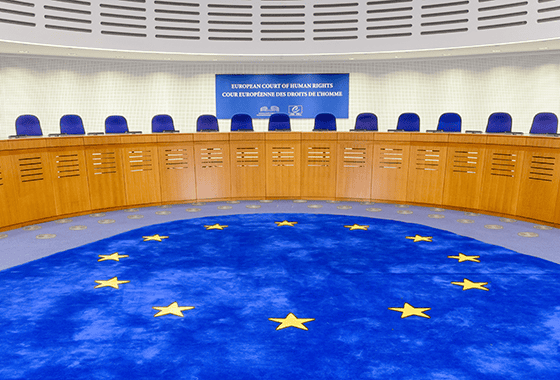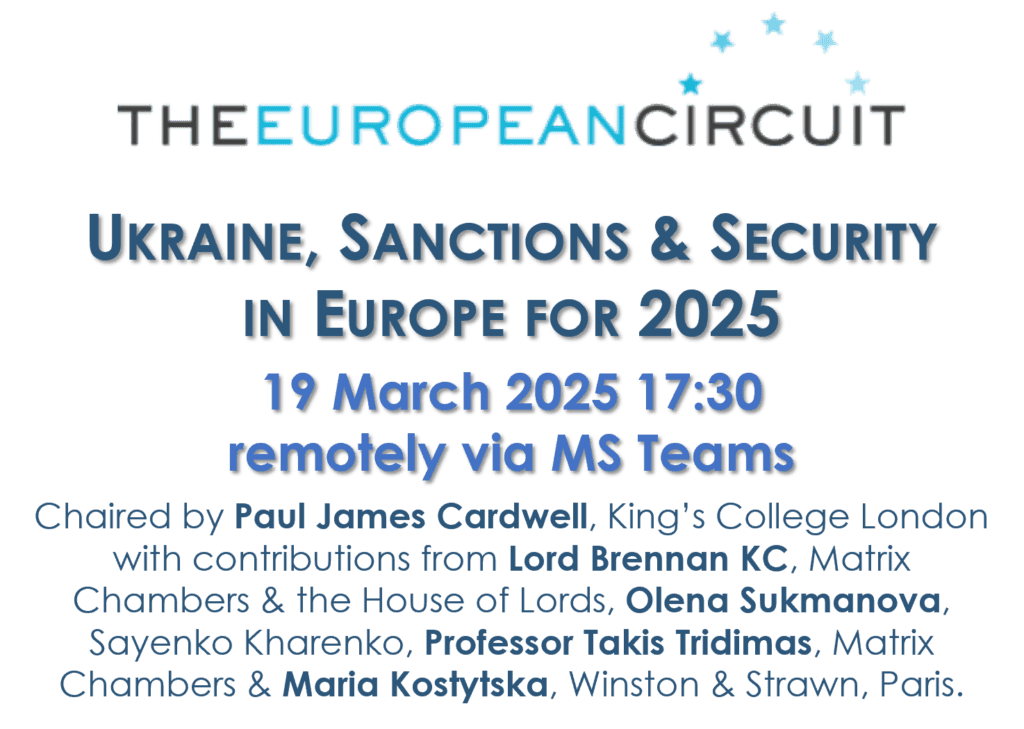
by Abigail Holt & Athena Markides
Brenda from Bristol may have put it best: “not another one” is perhaps the only reaction to a forthcoming general election ever to have gone viral.
This is a nation ostensibly tired of politics. Tired of experts. Tired of being made to make difficult decisions. So is this is a sign that we need a written constitution? And if we do, is now the right time for one?
These are complicated and highly charged questions, and on the 4th May the European Circuit was privileged to hear these points addressed by some of Europe’s foremost authorities on the topic.
Lord Mance chaired a panel comprised of Sir Jeffrey Jowell QC, Professor Stefan Vogenauer, Professor Eoin Carolan and Professor Alison Young, each of whom spoke on the subject “Written Constitution – Experiences and Challenges” before taking questions from the audience. In the best legal tradition, the speakers were split and individually persuasive in their views.
It was hard not to sympathise with Sir Jeffrey Jowell’s assessment that a written constitution could offer a form of clarity, authority and accessibility which our current system does not. UK lawyers, let alone the public at large remain unfortunately but understandably ignorant of the jurisprudence of constitutional law. This might be otherwise if the starting point were a slim paperback with which every school child – and indeed every politician, newspaper columnist and lawyer – could be provided.
Sir Jeffrey Jowell also emphasised that a written constitution could be used to entrench and safeguard commonly held values and those rights which we consider to be inalienable. It would provide a framework for decision-making, rather than being an instrument of decision making itself, and thereby subject to political imperatives. In this regard, Sir Jeffrey characterized a written constitution as “a tie imposed by Peter when sober on Peter when drunk.” At a time when Peter appears to be poking at his left ear and proclaiming that he has found his nose, it is tempting to lock the fine china out of his reach.
Professor Vogenauer offered his insights regarding the German constitution. He noted that the German consensus was that their written constitution was a source of national pride and a “good thing”. Professor Vogenauer acknowledged, however, that a written constitution is not a panacea. It can only ever be as good as its contents and those who preserve and apply them. It is easier to protect human rights by restricting those actions which undermine them than to legislate for the provision of social rights. A successful written constitution might therefore disappoint the aspirations of its proponents. Professor Vogenauer concluded that a cost-benefit analysis ought properly to be incorporated within a written constitution to ensure that it was able to change and remain flexible and responsive, whilst simultaneous safeguarding those rights which were contemporaneously considered sacred.
Professor Carolan adopted the theme of practicality, emphasizing the limits of language as a tool to uphold uplifting public values and reiterating that drafting in loose language can be expensive for governments. In so doing, he reminded the room that language alters over time, often unpredictably; a written constitution would need to be sufficiently flexible to avoid it becoming a tool of oppression. Professor Carolan also highlighted the perceived lack of trust in experts, elites and public authority figures in the UK at present. As perhaps the most natural proponents of a written constitution, these figures would be unlikely to receive a welcome reception. A written constitution perceived as illegitimate by the majority- or even a significant minority of, say, 48% – is arguably even worse than the current system. There are significant logistical challenges in organizing the consultations which would be a necessary precursor to a written constitution: enshrining the status quo is not a rallying cry for concentrated political action. The possibility of fomenting change might garner more support, but it is far from clear that that those competing objectives could solidify into support for any single set of proposals.
Professor Young reinforced the view that “elites” are a damaged currency at present. National divisions create the real risk that advocates for constitutional change will find their views discounted on the basis that they are either a “Leaver” or a “Remainer”. As campaigning becomes increasingly partisan and the electorate is asked to define itself as much by who it opposes as by who it supports, it is hard to define the fundamental values which might form the basis of a written constitution. It was also easy to sympathise with Professor Young’s view that Parliament is rather preoccupied at present, and would be unlikely to welcome significant constitutional debate with the care, time or investment it deserves.
I could not help but share in Sir Jeffrey’s enthusiasm for the benefits of a written constitution. But as the talks progressed, I found myself increasingly convinced that at this precise moment in time, we would be unlikely to reach agreement on any constitution worth having.
It was a recurrent theme amongst the speakers that countries adopt written constitutions following a tipping point: some moment of fundamental change, typically war or revolution. No one can deny that the United Kingdom is facing significant constitutional upheaval. No one can deny that there are advantages to a written constitution. The question is whether we should wait for Peter to sober up, or whether we need to act now before he finishes the bottle.




